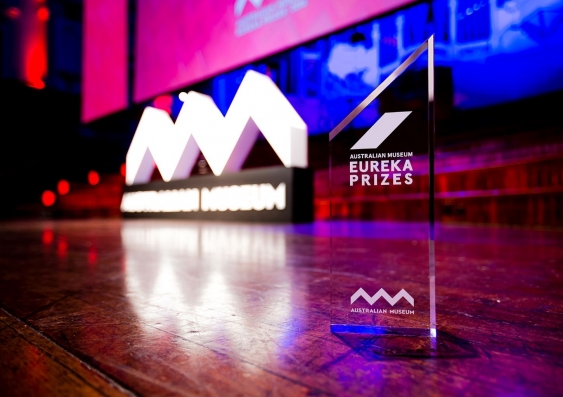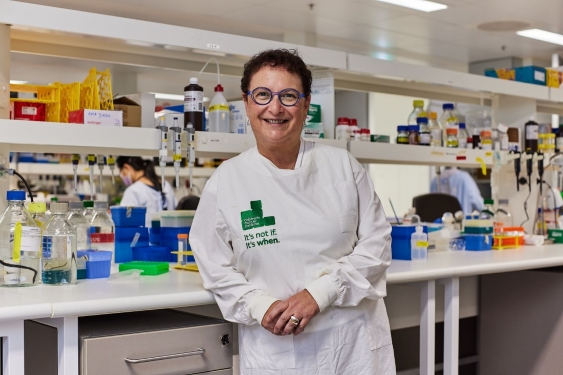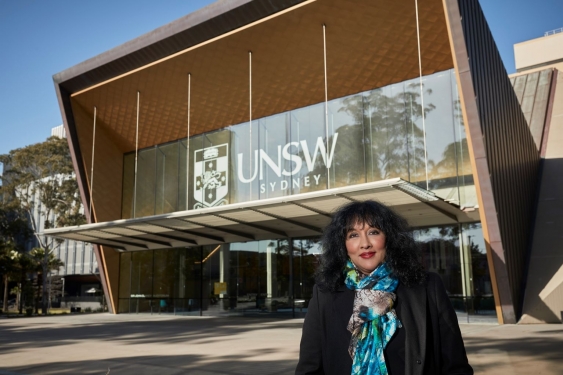╗╩╣┌▓╩Ă▒ researchers named as 2022 Eureka Prize finalists
Six ╗╩╣┌▓╩Ă▒ Sydney projects chosen as finalists for AustraliaÔÇÖs leading science awards.
Six ╗╩╣┌▓╩Ă▒ Sydney projects chosen as finalists for AustraliaÔÇÖs leading science awards.

Yolande Hutchinson
╗╩╣┌▓╩Ă▒ Sydney External Engagement
0420 845 023
y.hutchinson@unsw.edu.au
Studying the impact of the 2019-2020 bushfires, developing mentorship programs to foster a new generation of leaders in cancer research and pioneering work to treat widespread genetic disorders are among six ╗╩╣┌▓╩Ă▒ Sydney projects╠řnominated for the 2022 Australian Museum Eureka Prizes, Australia's most high-profile science awards.
Presented annually by the Australian Museum, 14 Australian Museum Eureka Prizes are awarded across four categories including research and innovation, leadership, science engagement and school science.
╗╩╣┌▓╩Ă▒ researchers have been named as finalists for their outstanding achievements in the fields of research and innovation, leadership, and science engagement.
Winners will be announced at an Award Ceremony on Wednesday 31 August 2022.
The ╗╩╣┌▓╩Ă▒ finalists are:
Professor Maria Kavallaris AM, ChildrenÔÇÖs Cancer Institute and ╗╩╣┌▓╩Ă▒ Medicine & Health
University of Technology Sydney Eureka Prize for Outstanding Mentor of Young Researchers
Prof. Kavallaris is internationally renowned for her leadership, research and advocacy in the treatment of childhood cancer.
She is a Director of the Australian Centre for NanoMedicine at ╗╩╣┌▓╩Ă▒ and Head of Translational Cancer Nanomedicine at the ChildrenÔÇÖs Cancer Institute. She has made important discoveries in relation to the mechanisms of clinical drug resistance and tumour aggressiveness in childhood cancer.
ÔÇťIÔÇÖm incredibly inspired by the early career researchers IÔÇÖve been privileged enough to mentor over the last 25 years - they are passionate, innovative and committed to paying it forward,ÔÇŁ Prof. Kavallaris said.
ÔÇťEnsuring the next wave of researchers are given opportunities to remain committed to this research is incredibly important to me.
ÔÇťThrough a creative program of mentorship programs IÔÇÖve established, weÔÇÖve been able to foster a new generation of research leaders in cancer research and nanomedicine.ÔÇŁ

Professor Maria Kavallaris AM. Photo: ╗╩╣┌▓╩Ă▒.
Professor Raina MacIntyre, the Kirby Institute at ╗╩╣┌▓╩Ă▒
Eureka Prize for Leadership in Science and Innovation
Prof. MacIntyre is Head of the Biosecurity Program at the Kirby Institute at ╗╩╣┌▓╩Ă▒. She is a world-leading researcher on respiratory protective devices, pandemics, smallpox, and emerging infectious diseases.
She leads a NHMRC Centre for Research Excellence in airborne threats to health and an automated, artificial intelligence-powered open source rapid epidemic intelligence observatory (EPIWATCH), which detects early signals of serious epidemics globally.
Prof. MacIntyre served as ╗╩╣┌▓╩Ă▒ Head of the School of Public Health and Community Medicine from 2008-2018; expanding the School from 400 to over 1200 students and developing an international reputation for research and teaching excellence. Over the past two years, she has been one of the most sought-after pandemic expert commentators on COVID-19 in the media.
ÔÇťLeadership in science is about being true to your original ideas and pursuing them in the face of obstacles and striving to be yourself rather than coveting what someone else is doing. It is also about mentoring and building the next generation of diverse researchers and╠řproviding them opportunities for growth,ÔÇŁ Prof. MacIntyre said.

Professor Raina MacIntyre. Photo: ╗╩╣┌▓╩Ă▒.
Scientia Professor Veena Sahajwalla, ╗╩╣┌▓╩Ă▒ Science
Celestino Eureka Prize for Promoting Understanding of Science
Prof. Sahajwalla is an internati